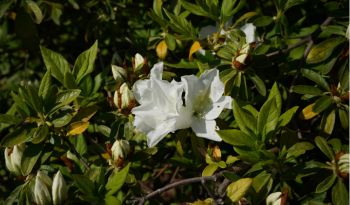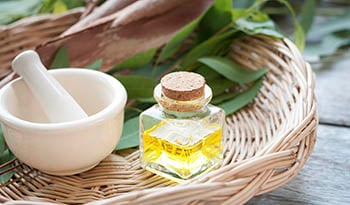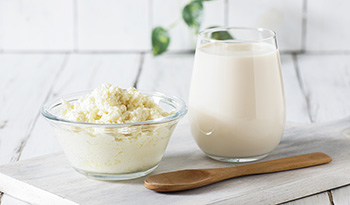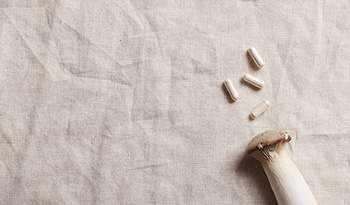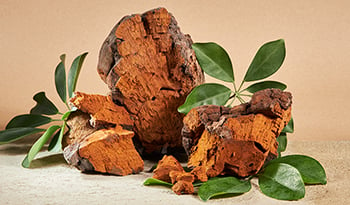Top Benefits of Stinging Nettle and its Side Effects
What Is Stinging Nettle?
Stinging nettle, also scientifically known as Urtica dioica, is a weedy, perennial plant. Native to the colder climates of Europe, Asia, North America, and North Africa, the shrub can be found throughout the world. It thrives in rainier climates, where it grows wild along trails and roadsides and near waste grounds, meadows, and streams.
The plant has dark green oblong or oval-shaped, toothed leaves, brown or greenish-colored flowers that grow in clusters, and drooping stems that hold fruit with numerous seeds. Stinging nettle spreads rapidly, forming dense colonies and growing between two and six-and-a-half feet tall. The plant is an important food for certain butterflies and other insects.
The plant’s common name, “stinging nettle,” comes from the fact that the leaves and stems are covered with both non-stinging and stinging hairs. These hairs are about a quarter inch long. Touch a stinging one and it feels like a sharp, painful bee sting.
The stinging hairs contain several chemicals, including formic acid—the same compound fire ants and bees use to sting. These chemicals trigger an itchy, burning rash in people and animals that can last up to 12 hours. The chemicals are a defense mechanism that helps to keep large plant-eating animals like deer away. Cooking or freeze-drying the plant or processing it as a supplement makes stinging nettle safe to consume.
Like many traditional Chinese Medicinal herbs, such as cinnamon, ginger, and gotu kola, stinging nettle can be used medicinally in various forms, including capsules, teas, and tinctures. You can also buy organic nettle leaf or root and make your own nettle tea or tincture. In addition, the stinging nettle plant is added to topical creams designed to alleviate joint pain and skin issues like eczema and dandruff.
The plant also has a variety of nonmedicinal uses. It’s used to make textiles, fertilizers, and insecticides, added to cosmetics, and fed to farmed fish to improve reproduction.
Benefits of Stinging Nettle
Like echinacea, dandelion, and turmeric, stinging nettle is a common Western herbal medicine that has been used as a natural remedy for over 2,000 years. The seeds, roots, and leaves are all used in herbal remedies to treat a wide variety of conditions, from benign prostatic hyperplasia (BPH), or enlarged prostate, to joint pain.
In traditional Western medicine, nettle is described as dry with an astringent, bitter, salty, sweet taste. It’s considered neutral and neutralizing in temperature and tone. Like burdock, yellow dock, and echinacea root, nettle leaf is considered depurative, which means it improves detoxification and supports elimination. In Ayurvedic medicine, stinging nettle is used to cleanse the blood, heal skin diseases, stop allergies, and strengthen and nourish the body.
All parts of the plant (leaves, stems, roots, and seeds) have anti-inflammatory, antioxidant, and anti-infectious properties. The root is used to treat bladder problems associated with enlarged prostate, and the leaves are used to treat arthritis, rheumatism, and allergic rhinitis. The leaves are made into a tea. Purported nettle tea benefits include reducing inflammation, boosting the immune system, and supporting the bladder, kidneys, and brain.
High in Nutrients
Sometimes referred to as a “pirate plant,” stinging nettle takes over environments and thrives almost anywhere due to its ability to extract nutrients from even the poorest soils. This characteristic makes nettles highly nutritious and able to support the whole body. Considered a diuretic, the stinging nettle plant is traditionally eaten in springtime to help detoxify the body and ready it for warmer weather.
Nettle leaves have been consumed as a popular, wild vegetable for hundreds of years and are also grown as a potted plant. The cooked leaves have a mild taste and aroma like cooked spinach. Young leaves are used in curries and soups. Traditionally, the leaves are also boiled, mixed with ricotta cheese, and used in filled pastas like ravioli or dried for nettle tea.
In Nepal, stinging nettle is an important food and is considered one of the healthiest on earth. It is enjoyed by people in underprivileged ethnic tribes and served at five-star hotel restaurants.
To enjoy nettles, cook the leaves like other leafy greens and add them to soups and stews. Nettle leaf powder can also be incorporated into foods like bread and pasta to increase the protein, fiber, calcium, iron, and antioxidant (especially lutein and beta-carotene) content.
Like kale, collards, and other leafy greens, stinging nettle is rich in minerals, including potassium, calcium, magnesium, manganese, phosphorus, and iron. Packed with fiber and very low in calories, stinging nettle also contains thiamin (vitamin B1), niacin (vitamin B3), riboflavin (vitamin B2), vitamin B6, choline, and vitamin K, and is high in vitamins C and A. About 30% protein, the stinging nettle plant contains all essential amino acids.
Helps With Inflammation
Nettle leaves are rich in phytochemicals like the flavonoids quercetin, kaempferol, and rutin and the carotenoids beta-carotene and lutein. These plant compounds act as antioxidants and have anti-inflammatory properties. Antioxidants are molecules that defend the body’s cells from free radicals and may help prevent oxidative damage associated with aging and chronic diseases like heart disease.
Nettle tea and nettle supplements have been used to treat a variety of inflammatory conditions, including arthritis, muscle aches, and gout. The plant appears to curb acute and chronic inflammation by reducing the production of lipid mediators, prostaglandins (hormone-like compounds), and inflammatory cytokines (types of cell messengers).
A randomized controlled study of 81 patients with osteoarthritis found that those who took a supplement containing fish oil, vitamin D, and stinging nettle experienced a significant improvement in their symptoms and a decreased need for nonsteroidal anti-inflammatory drugs (NSAIDs) like aspirin and ibuprofen compared to those who took a placebo.
Nettle leaf applied topically may also help reduce joint pain. One randomized controlled study of 27 patients with osteoarthritic pain at the base of their thumbs or index finger found that applying stinging nettle leaf daily to painful areas significantly reduced both pain and disability.
Stinging nettle’s anti-inflammatory benefits may be due to its high quercetin content. Studies suggest quercetin may support the treatment of many diseases, including arthritis, diabetes, heart disease, and Alzheimer’s.
May Enhance Detoxification
Stinging nettle may enhance detoxification. This is important because both environmental toxins and those produced by the body can trigger inflammation. Nettle supports detoxification by improving digestion, which can help prevent toxins from accumulating, and stimulating the lymphatic system, which supports the kidneys so they can effectively eliminate toxins from the body.
One animal study showed that nettle leaves protected rats from mercury toxicity. It also showed nettles enhanced levels of glutathione, an antioxidant that helps the body fight chronic disease, heart disease, in the liver and kidneys.
Supports Prostate Health
An enlarged prostate, known as benign prostatic hyperplasia (BPH), is a significant health issue for men as they age. About 13% of American men will get prostate cancer during their lifetime. By age 60, approximately half of men have issues associated with BPH, such as difficulty urinating or an increased need to pee. Without treatment, BPH can cause problems including urinary tract infections, kidney damage, and bladder stones.
Stinging nettle may help lower the risk of prostate disease by slowing the spread of cancer cells. While more research is needed to determine how the stinging nettle plant may be used to help treat prostate cancer, studies suggest stinging nettle root extracts may inhibit the growth of human prostate cancer cells.
In a six-month clinical trial of 620 patients with BPH, men who took stinging nettles experienced a greater reduction of symptoms with no adverse side effects compared to those who took a placebo. Another clinical trial found that taking 300 milligrams of nettle root extract twice daily for eight weeks was an effective complementary intervention along with traditional BPH treatments.
Animal studies have shown that stinging nettle root extract is an effective treatment for BPH, inhibiting prostate gland growth by over 50%. However, more research is needed to know whether stinging nettles is an effective treatment for BPH in humans.
May Help With Blood Sugar Control
It’s estimated that over 76 million Americans have diabetes or prediabetes. Diabetes, which happens when blood sugar levels are too high, can contribute to other health issues, including heart and kidney disease.
Like supplements such as berberine, omega-3s, vitamin D, turmeric, and probiotics, stinging nettles may help regulate blood sugar levels in people with type 2 diabetes without the side effects of conventional anti-hyperglycemic medications. Used in traditional medicine to treat diabetes, the plant appears to help control blood sugar levels by increasing insulin secretion and enhancing the ability of cells to use glucose.
A review of studies examining the effect of nettle supplementation on blood sugar control concluded that nettle may effectively control fasting blood sugar in people with type 2 diabetes.
In a well-designed study, people with diabetes took capsules of 500 milligrams of nettle leaf every eight hours for three months, along with conventional diabetes drugs. The study concluded that “nettle may safely improve glycemic control in type 2 diabetic patients needing insulin therapy.”
An additional randomized clinical trial of 50 women with type 2 diabetes found that taking nettle extract for eight weeks significantly decreased fasting and total blood glucose and increased HDL “good” cholesterol levels.
May Help Reduce Blood Pressure
According to the Centers for Disease Control (CDC), almost half of American adults have high blood pressure, putting them at an increased risk for heart disease and stroke.
Nettles have been used traditionally to manage cardiovascular disease and hypertension and may help reduce blood pressure in several ways:
- Acts as a diuretic: Like green tea and dandelion, stinging nettle is a diuretic that can help reduce blood pressure by helping the body eliminate excess water and salt.
- Promotes vasorelaxation: Root extracts may increase vasorelaxation, helping blood vessel walls relax, which increases blood flow and reduces blood pressure.
- Mimics a calcium channel blocker: The plant may lower blood pressure by acting like a calcium channel blocker.
A study of rats with high blood pressure found that nettle leaf extract supplementation reduced both systolic and diastolic blood pressure. In addition, the plant increased antioxidant capacity and reduced systemic oxidative stress.
May be Useful for Treating Allergies
Stinging nettle may help reduce hay fever and other seasonal allergies in two ways. The plant appears to block histamine, a chemical released by the immune system in response to allergen exposure that triggers symptoms such as runny nose, sneezing, and itchy eyes. It also seems to inhibit tryptase, a protein and enzyme that plays a role in the body’s immune response.
A randomized controlled trial of 98 patients with allergic rhinitis found that people who took stinging nettles for one week had a higher global rating of their symptoms compared to controls. However, their diary ratings of symptoms were only slightly higher than those of controls.
While limited research shows promising results, more studies are needed to confirm the use of nettles to treat seasonal allergies.
Possible Side Effects to Consider
While stinging nettle is generally safe when dried, avoid touching or eating fresh stinging nettle leaves—plant hairs on the leaves can cause burning, blistering, and an itchy rash. The plant’s sap also contains a toxin that can irritate the skin. Avoid consuming stinging nettle if you are allergic to stinging nettle or other plants in the nettle (Urtica) family.
Stinging nettle supplements and extracts are generally well-tolerated and safe to consume. Adverse side effects are uncommon but may include headache, nausea, diarrhea, constipation, or stomach discomfort.
Children and women who are pregnant, trying to become pregnant, or nursing should not take it. Older people should use it with caution, as it can lower blood pressure too much. Since it is a diuretic, talk with your doctor before taking nettle if you have kidney or bladder issues.
If you think you may have BPH, consult your doctor to get a diagnosis and make sure you don’t have prostate cancer before treating your symptoms with stinging nettles.
In addition, research on the use of nettles for diabetes is mixed, with evidence showing it can reduce or increase blood sugar levels. So, if you have diabetes, use it cautiously and monitor your blood glucose closely.
The plant may also interact with other supplements and some medications, including blood thinners, lithium, blood pressure medications, nonsteroidal anti-inflammatory drugs, and anti-inflammatory drugs. Talk with your doctor or pharmacist before taking nettle.
How to Safely Consume Stinging Nettle
Stinging nettle comes in a wide variety of forms. As a supplement, it is available as an extract, capsule, tablet, powder, or tincture. While there is no standard dose for stinging nettle, typical recommended doses range between 300 to 600 milligrams per day.
You can also consume nettle tea or purchase dried or freeze-dried leaves. For prostate health, stinging nettle is available in combination with other prostate-supporting ingredients, such as pumpkin seed oil, green tea extract, and saw palmetto.
Takeaway
Stinging nettle is a common Western medicinal herb with many traditional uses. Studies suggest this nutrient-rich plant may benefit a range of conditions, from enlarged prostate and high blood pressure to seasonal allergies and arthritis.
While nettle is generally safe for most people when consumed as a supplement or tea, it may interact with certain medications—and some people, like women who are pregnant or those with kidney or bladder issues, should avoid it. If you are considering incorporating nettle into your wellness regimen, talk with your doctor to ensure it is safe for you.
References:
- Amiri Behzadi A, Kalalian-Moghaddam H, Ahmadi AH. Effects of Urtica dioica supplementation on blood lipids, hepatic enzymes and nitric oxide levels in type 2 diabetic patients: A double blind, randomized clinical trial. Avicenna J Phytomed. 2016 Nov-Dec;6(6):686-695.
- Bhusal KK, Magar SK, Thapa R, Lamsal A, Bhandari S, Maharjan R, Shrestha S, Shrestha J. Nutritional and pharmacological importance of stinging nettle (Urtica dioica L.): A review. Heliyon. 2022 Jun 22;8(6):e09717.
- Dar, S. A., Ganai, F. A., Yousuf, A. R., Balkhi, M. ul H., Bhat, T. M., & Sharma, P. (2012). Pharmacological and toxicological evaluation of Urtica dioica. Pharmaceutical Biology, 51(2), 170–180.
- Domola MS, Vu V, Robson-Doucette CA, Sweeney G, Wheeler MB. Insulin mimetics in Urtica dioica: structural and computational analyses of Urtica dioica extracts. Phytother Res. 2010 Jun;24 Suppl 2:S175-82.
- Jacquet A, Girodet PO, Pariente A, Forest K, Mallet L, Moore N. Phytalgic, a food supplement, vs placebo in patients with osteoarthritis of the knee or hip: a randomised double-blind placebo-controlled clinical trial. Arthritis Res Ther. 2009;11(6):R192.
- Kianbakht S, Khalighi-Sigaroodi F, Dabaghian FH. Improved glycemic control in patients with advanced type 2 diabetes mellitus taking Urtica dioica leaf extract: a randomized double-blind placebo-controlled clinical trial. Clin Lab. 2013;59(9-10):1071-6.
- Konrad L, Müller HH, Lenz C, Laubinger H, Aumüller G, Lichius JJ. Antiproliferative effect on human prostate cancer cells by a stinging nettle root (Urtica dioica) extract. Planta Med. 2000 Feb;66(1):44-7.
- Lichius JJ, Muth C. The inhibiting effects of Urtica dioica root extracts on experimentally induced prostatic hyperplasia in the mouse. Planta Med. 1997 Aug;63(4):307-10.
- Randall C, Randall H, Dobbs F, Hutton C, Sanders H. Randomized controlled trial of nettle sting for treatment of base-of-thumb pain. J R Soc Med. 2000 Jun;93(6):305-9.
- Safarinejad MR. Urtica dioica for treatment of benign prostatic hyperplasia: a prospective, randomized, double-blind, placebo-controlled, crossover study. J Herb Pharmacother. 2005;5(4):1-11.
- Siouda W, Abdennour C. Can Urtica dioica supplementation attenuate mercury intoxication in Wistar rats? Vet World. 2015 Dec;8(12):1458-65.
- Testai L, Chericoni S, Calderone V, et al. Cardiovascular effects of Urtica dioica L. (Urticaceae) roots extracts: in vitro and in vivo pharmacological studies. J Ethnopharmacol. 2002;81(1):105-109.
- Vajic UJ, Grujic-Milanovic J, Miloradovic Z, Jovovic D, Ivanov M, Karanovic D, Savikin K, Bugarski B, Mihailovic-Stanojevic N. Urtica dioica L. leaf extract modulates blood pressure and oxidative stress in spontaneously hypertensive rats. Phytomedicine. 2018 Jul 15;46:39-45.
- Ziaei R, Foshati S, Hadi A, Kermani MAH, Ghavami A, Clark CCT, Tarrahi MJ. The effect of nettle (Urtica dioica) supplementation on the glycemic control of patients with type 2 diabetes mellitus: A systematic review and meta-analysis. Phytother Res. 2020 Feb;34(2):282-294.
DISCLAIMER:This Wellness Hub does not intend to provide diagnosis...
















































































 Table of Contents
Table of Contents





